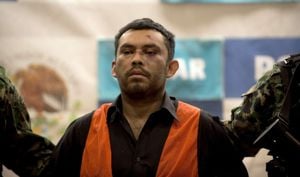The tragic knife attack on January 21st in the German city of Schulenburg shocked the nation, as two people lost their lives, including a two-year-old child. The assailant, identified as a 28-year-old Afghan man, reportedly attacked children from a kindergarten group, leading Chancellor Olaf Scholz to call it a heinous act.
The violence erupted when the suspect unleashed his aggression on innocent children, fatally wounding the young girl and killing a 41-year-old passerby who attempted to intervene. Hans Dieter Herrmann, the Bavarian Interior Minister, revealed during the aftermath discussions, "This kind of violence cannot be tolerated."
Following the incident, Scholz convened heads of Germany's security agencies at the Chancellery to demand clarity about the assailant's presence in the country. His urgent meeting with Germany's security leaders came immediately after flying back from Paris. "We must address why this man was still here," lamented Scholz as outrage mounted over the senseless violence.
Details about the attacker revealed he had been undergoing psychiatric treatment and was subject to deportation, having reportedly indicated his intention to leave Germany about six weeks prior. Herrmann noted, "The suspect had undergone treatment several times due to previous violent acts before he was allowed back on the streets." Despite his documentation to leave the country, bureaucratic obstacles prevented his departure.
Several other victims were injured during the attack and are reported to have suffered severe injuries, including another child who was part of the kindergarten group. The police apprehended the assailant shortly after the attack, twelve minutes after the chaos ensued.
Politicians expressed their deep shock and condemnation of the attack. Jürgen Herzing, the mayor of Schulenburg, visited the site of the tragedy to pay his respects with flowers. Concurrently, various political leaders took to social media to voice their sentiments. FDP parliamentary group leader Christian Dürr insisted on fast-tracking discussions among federal and state interior ministers to address such urgent security concerns.
Your thoughts resonate, especially as Bayerns Minister Herrmann stressed the need for improved protocols to identify criteria for deportation. His call for expected reforms emphasizes the need to protect vulnerable individuals like children from the repercussions of systemic failures. The mental health of the suspect posed both serious and systemic challenges, with noted lapses allowing his continued presence on German soil, raising eyebrows about national security standards.
Scholz’s statements resonate with many, “It’s not acceptable for individuals posing threats to remain here.” He pointed out to the systemic flaws leading to such tragedy and demanded accountability from the agencies involved. “Misguided tolerance cannot be justified when lives are at stake,” echoed the angers of citizens taking part on social media platforms.
While it’s still early to ascertain the full motivation behind the brutality of this attack, experts align with historical patterns observed within asylum processes along with the reality of mental health treatment failures.
Still, many are questioning the handling of asylum seekers venturing through many EU states, especially under strained circumstances leading to crises like this. The debate surrounding these insistent challenges will likely escalate as more communities are affected and push forward reforms to mitigate such potential disasters.
Overall, the knife attack is shaking the foundation of the community, compelling citizens to demand immediate legislative changes and greater attention to safety measures related to individuals undergoing various mental health treatments. This incident calls for heightened scrutiny of how authorities manage and monitor potentially dangerous humans within society, clouding much of the operational integrity surrounding Germany's immigration laws.
The heartbreaking reminder to remain vigilant is not lost on the residents. Words of gratitude and love poured from affected families as they grieved. Politicians from various factions articulated their sincere condolences to the families of the deceased, recognizing the community's grief and reflecting upon their sacrifices.
While the shockwaves of this tragedy will last, it is only through collective action, empathy, and strong governance can communities heal and pave the road for enduring safety for the citizens they serve.



